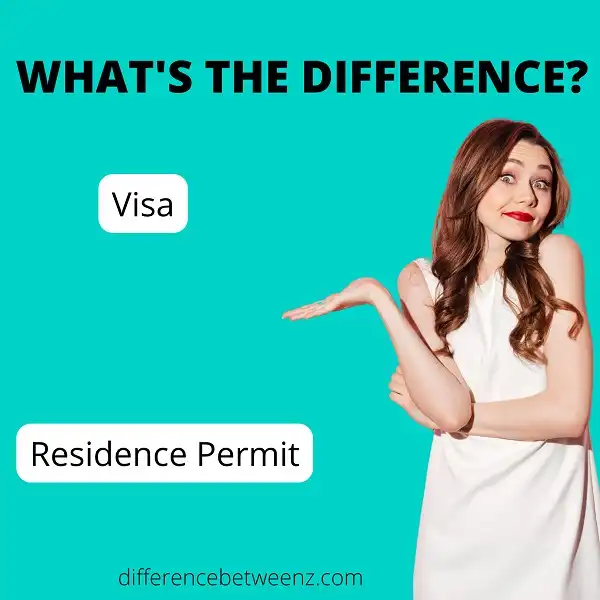When traveling to a foreign country, it is important to understand the different types of visas and residence permits available. A visa is an endorsement or stamp placed in your passport by a consulate or embassy of the country you will be visiting that allows you to enter that country for a specific purpose. A residence permit, on the other hand, is an official document that authorizes you to live in a certain country for a certain period of time. There are many differences between visas and residence permits, so it is important to understand which one best suits your needs. Here we will outline some of the key differences between these two documents.
What is a Visa?
A Visa is a document that allows the holder to enter, stay and exit a country for a certain period of time. It is issued by the country’s embassies or consulates and is generally valid for six months to five years. Visa requirements vary depending on the nationality of the applicant and the purpose of the visit, but all applicants must submit a Visa application form along with supporting documents such as a valid passport, travel itinerary, and proof of financial support.
In some cases, applicants may also need to provide biometric information such as fingerprints. Once issued, Visa holders must abide by the terms of their Visa, which may include restrictions on activities, employment, and length of stay. Violating the terms of a Visa can lead to cancellation of the Visa and potential deportation from the country.
What is a Residence Permit?
A Residence Permit is an ID that proves a person’s status as a legal resident of a country. In order to obtain a Residence Permit, one must usually submit an application to the relevant authorities. The application must include supporting documentation, such as a passport, birth certificate, and proof of employment or study. If the application is approved, the applicant will be issued a Residence Permit, which will need to be renewed on a regular basis.
Depending on the country, a Residence Permit may entitle the holder to certain benefits, such as healthcare and education. It also allows the holder to travel freely within the country and to re-enter the country if they leave. Therefore, a Residence Permit is an important document for anyone who wants to live and work in a foreign country.
Differences between a Visa and a Residence Permit
Visa and a Residence Permit, both are documents that allow a person to enter, stay and exit a country. A Visa is normally stamped or glued on your passport and allows you to stay in a country for a certain period of time.
- A Visa is generally required if the person wants to enter into a country for tourism, business, or personal reasons like meeting family or friends. A Residence permit on the other hand is more like a long-term Visa and allows you to stay in the country for an extended period of time.
- In order to apply for a residence permit, you will first need to obtain a Visa. The requirements for both Visa and residence permit vary from country to country. Some countries require that you have a certain amount of money in your bank account, while others require that you have a job offer from a local employer.
- It is important to check with the embassy of the country you wish to visit in order to determine what their specific requirements are. If you are planning on staying in the country for an extended period of time, it is advisable to apply for a residence permit as opposed to just a Visa.
Although the process of applying for a residence permit can be more lengthy and complicated than applying for a Visa, it will ultimately allow you to stay in the country for an extended period of time without having to worry about your Visa expiring.
Conclusion
In order to make an informed decision on which permit is best for you, it is important to understand the differences between a visa and a residence permit. A visa allows you to stay in the Schengen area for a certain amount of time and travel freely within the Schengen zone. A residence permit, on the other hand, allows you to live in the country that issued it. It also gives you more rights than a visa, such as working in your host country without having to obtain a work permit.


